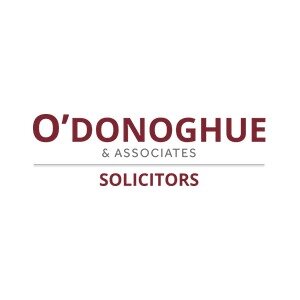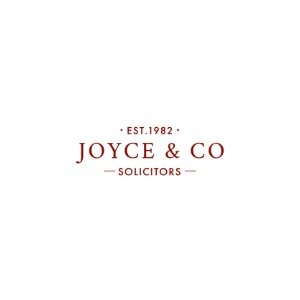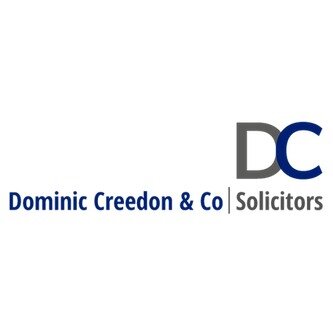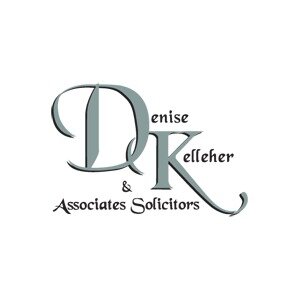Best Foreclosure Lawyers in Cork
Share your needs with us, get contacted by law firms.
Free. Takes 2 min.
Free Guide to Hiring a Real Estate Lawyer
List of the best lawyers in Cork, Ireland
About Foreclosure Law in Cork, Ireland
Foreclosure is a process that lenders use to recover the balance of a loan when a borrower defaults on their mortgage payments. In Cork, Ireland, and more broadly in Ireland, foreclosure is not as common as in some other jurisdictions. Instead, the process is referred to as repossession, where the lender seeks to take possession of the property to recover the loan amount. This process can be lengthy and involves various legal steps to protect both the lender's and the borrower's rights.
Why You May Need a Lawyer
There are several scenarios where you might need legal assistance with foreclosure in Cork, Ireland:
- Understanding Your Rights: To comprehend your rights and obligations under Irish law.
- Negotiation with Lenders: To negotiate more favorable terms with the lender, such as an extension or reduced payments.
- Legal Representation: To represent you in court if your case goes to a judicial proceeding.
- Dealing with Complex Paperwork: To help manage the complex legal documentation involved in the foreclosure process.
- Preventative Measures: To explore options to prevent foreclosure, such as loan modifications or refinancing.
Local Laws Overview
Key aspects of local laws in Cork, Ireland relevant to foreclosure include:
- Code of Conduct on Mortgage Arrears (CCMA): This code sets out procedures that lenders must follow when dealing with borrowers in mortgage arrears.
- Repossession Law: The lender must obtain a court order to repossess a property, and the borrower has a right to be heard in court.
- Personal Insolvency Act 2012: This act provides mechanisms for borrowers to resolve their debt issues, including through Debt Settlement Arrangements (DSA) or Personal Insolvency Arrangements (PIA).
- Mortgage-to-Rent Scheme: Allows homeowners at risk of losing their homes to remain in the property as tenants of a housing association.
Frequently Asked Questions
What is the first step a lender takes in a foreclosure process?
The lender usually issues a demand letter, notifying the borrower of the default and the intention to begin the foreclosure process.
Can I stop the foreclosure process once it has started?
Yes, you can potentially stop the process by paying the owed amount, renegotiating the loan terms, or entering into a debt resolution arrangement.
How long does the foreclosure process take in Cork, Ireland?
The process can vary but typically takes several months to over a year, depending on court schedules and the specifics of the case.
Do I need a lawyer for a repossession case?
While not mandatory, having a lawyer can provide you with invaluable advice and representation, enhancing your chances of a favorable outcome.
What is a Debt Settlement Arrangement (DSA)?
A DSA is a legally binding agreement to repay unsecured debts over a set period, which can provide relief if you are facing foreclosure due to default.
Can I appeal a court order for repossession?
Yes, you can appeal, but you will need to have substantial grounds for the appeal and it’s advisable to seek legal advice.
What happens to my credit rating if my property is repossessed?
Repossession will negatively impact your credit rating and will be reflected in your credit history for several years.
Will I owe money after the property is repossessed?
If the sale of the repossessed property does not cover the outstanding mortgage, you may still be liable for the remaining debt.
Are there alternatives to foreclosure?
Yes, alternatives include loan modification, refinancing, Debt Settlement Arrangements, and the Mortgage-to-Rent Scheme.
What should I do if I receive a foreclosure notice?
Seek immediate legal advice to understand your options and formulate a plan of action.
Additional Resources
Here are some resources that can be helpful if you are dealing with foreclosure in Cork, Ireland:
- The Money Advice and Budgeting Service (MABS) - Offers free, confidential, and independent advice on managing your debt.
- The Insolvency Service of Ireland (ISI) - Provides information on personal insolvency options, including DSAs and PIAs.
- Citizens Information - Offers detailed guides on rights and entitlements regarding housing and foreclosure.
- Legal Aid Board - Provides legal advice and representation for those who qualify.
- Central Bank of Ireland - Offers information on the Code of Conduct on Mortgage Arrears (CCMA).
Next Steps
If you require legal assistance for foreclosure in Cork, Ireland, consider the following steps:
- Consult with a Lawyer: Schedule a consultation with a lawyer specializing in foreclosure or repossession cases to discuss your specific situation.
- Gather Documentation: Collect all relevant documents including mortgage agreements, payment histories, and any correspondence from your lender.
- Explore Options: Work with your legal advisor to explore all possible options to avoid foreclosure, or to mitigate its impact.
- Prepare for Court: If your case goes to court, prepare thoroughly with your lawyer to present a strong defense or negotiation strategy.
- Stay Informed: Keep yourself updated on any changes in foreclosure laws and available resources.
Taking these steps can help you navigate the complexities of foreclosure with greater confidence and legal backing.
Lawzana helps you find the best lawyers and law firms in Cork through a curated and pre-screened list of qualified legal professionals. Our platform offers rankings and detailed profiles of attorneys and law firms, allowing you to compare based on practice areas, including Foreclosure, experience, and client feedback.
Each profile includes a description of the firm's areas of practice, client reviews, team members and partners, year of establishment, spoken languages, office locations, contact information, social media presence, and any published articles or resources. Most firms on our platform speak English and are experienced in both local and international legal matters.
Get a quote from top-rated law firms in Cork, Ireland — quickly, securely, and without unnecessary hassle.
Disclaimer:
The information provided on this page is for general informational purposes only and does not constitute legal advice. While we strive to ensure the accuracy and relevance of the content, legal information may change over time, and interpretations of the law can vary. You should always consult with a qualified legal professional for advice specific to your situation.
We disclaim all liability for actions taken or not taken based on the content of this page. If you believe any information is incorrect or outdated, please contact us, and we will review and update it where appropriate.














